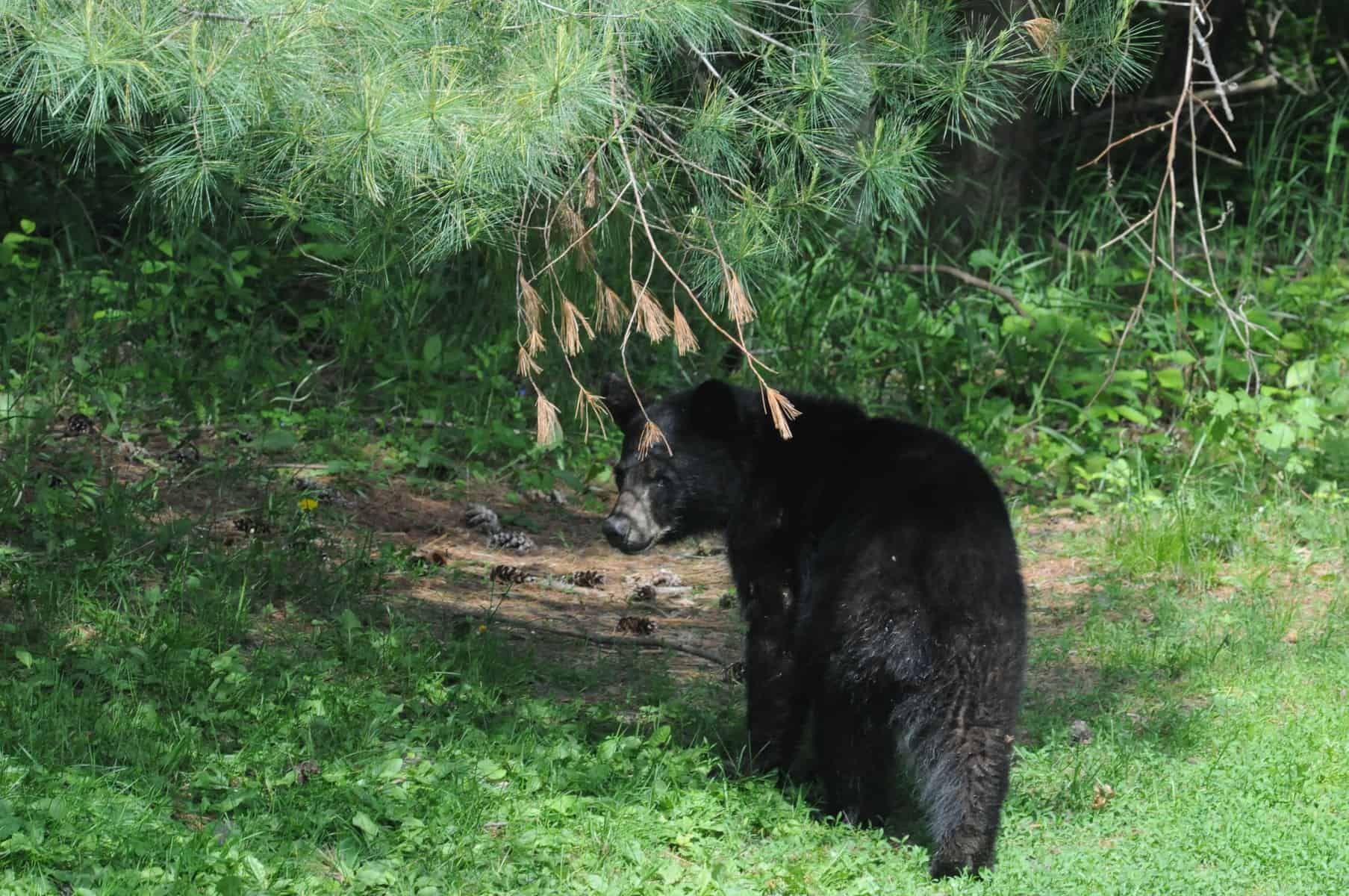
MONTPELIER, Vt. – The Vermont Fish & Wildlife Department says warm spring weather and melting snows will cause bears to come out of their winter dens in search of food. The department recommends taking down bird feeders by April 1 to avoid attracting bears.
“We are already receiving our first bear reports, and the warmer temperatures predicted now will stimulate more bears to emerge from their dens to seek any food sources they can smell,” said Forrest Hammond, Vermont’s bear biologist. “Bears are very fond of suet and bird seed, especially black oil sunflower seed, which they can smell from a long distance. Bringing feeders in at night doesn’t work, because bears will still feed on seed that is spilled on the ground.”
Bird feeders are just one of the things that can attract hungry bears. Other sources of food that bears find appealing are pet food, barbecue grills, garbage, household trash containers, open dumpsters, campsites with accessible food, and food wastes. Purposely feeding a bear is not just bad for the bear – it is dangerous for you, it causes problems for your neighbors, and it’s also illegal.
Fish & Wildlife also offers the following tips to avoid bear problems:
- Keep chickens and honeybees secure within an electric fence or other bear-proof enclosure.
- Never feed bears, deliberately or accidentally.
- Feed your pets indoors.
- If you compost, learn to do it without causing odors that attract wildlife.
- Store trash in a secure place. Trashcans alone are not enough.
- If bears are entering your dumpster, request a bear-proof one from your waste hauler.
“We are asking anyone who has a problem with a bear to report the incident in a form that we have on our website, www.vtfishandwildlife.com, under Living with Black Bears,” said Hammond. “There is a section in the form where you can ask us to call you to provide advice.”